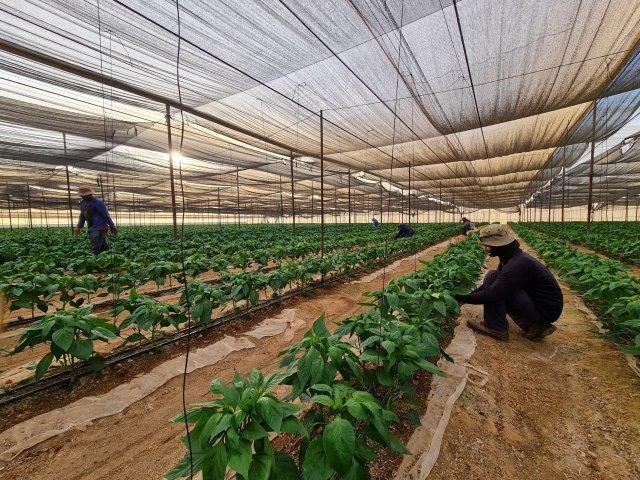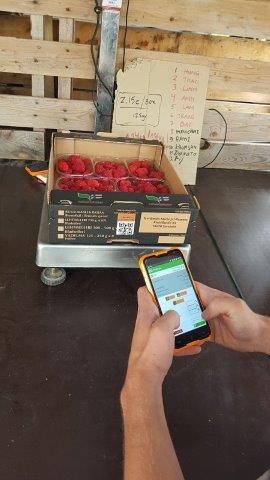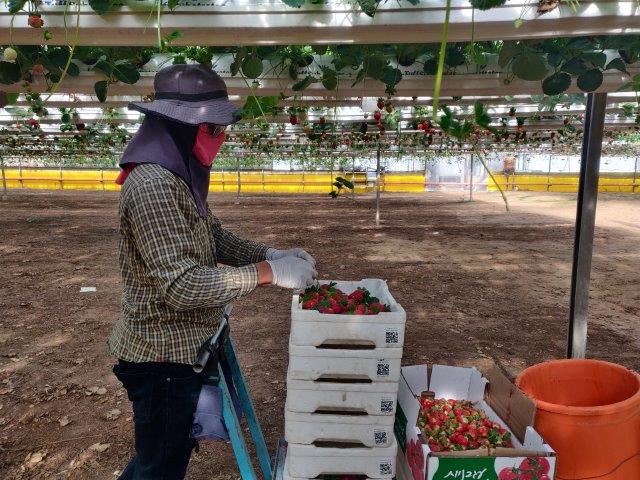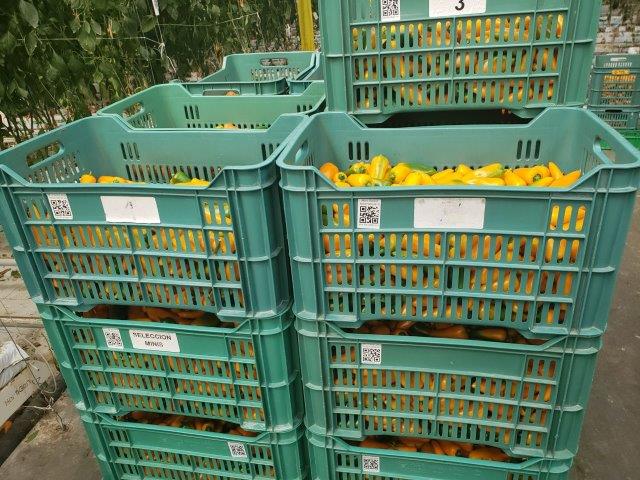Solution – Precision and Efficiency of the Innovative PICKAPP system
Yoram Gommershtadt, Co-Founder & Chairman ▪︎ PickApp Farming


Agriculture is an industry that presents diverse challenges in different places in the world, and under changing climatic conditions, as it functions in situations of uncertainty.
Farmers all over the world are experiencing a decrease in the resources available to them – whether land or water. This is compounded by many other seasonal difficulties, such as decreasing exchange rates, the need to find workers, the rise in maritime transportation costs, increasing competition and the market’s expectation for high-quality produce. Hence the challenge facing farmers all over the world is increasing and farmers who want to make a profit must constantly be improving, i.e. reducing costs and producing more.
In order to maintain profitability in a world where revenues are declining and expenses rising, the former must be increased, by adopting management methods that will ensure efficiency and accuracy. As the connection between the date of required agricultural actions and the quality of produce is clear, the farmer must be punctual, minimize time, pick on plan and, in general, be accurate and efficient. A farmer who has utilized his potential more positively and according to a set schedule, will produce a crop of a much higher quality that will yield greater income.
A farmer who wants to be accurate and efficient, i.e. strives to increase productivity, improve quality and lower costs, while also responding quickly to occurrences in the field and getting workers to work efficiently, can do so using PICKAPP – a system that gives farmers tools for accurate management.
.jpg)
The PICKAPP system is based on collecting data in real time from all operations performed on the farm, by scanning barcodes attached to the worker, tree, row in the field or harvesting box. The employees and managers scan barcodes in the field while working, thus, collecting reliable data (the same box or row cannot be mistaken and scanned twice or more), and these are transferred to an information analysis and management system that submits structured reports for the farmer (“dashboard” or customized reports, according to his needs).
This system has several clear advantages:
1. Ability to measure and monitor any action on the farm, taken in real time.
2. Control and monitoring of all activities on the farm in real time, even if the farmer is not present.
3. Possibility of repair and improvement in the short term, and long-term planning – the farmer receiving the data can make changes during work, such as mobility or changes in the long-term management of workers.
Management of the PICKAPP information helps increase revenues and improve produce to “A” quality standards, because it allows the farmer to go back and correct any inaccurate action. In addition, the reports make the employee committed to his work; as he knows that he is being monitored, his responsibilities and motivation increase.
The PICKAPP system is also very beneficial in remote desert areas, as it allows the farmer to manage all operations on the farm from afar. Even if he does not visit the farm every day, the system gives him a clear picture of what is happening there; how much is harvested each day, who harvested and what the pace is, and when he comes to the farm, he can give his workers immediate feedback, based on accurate information.

Another important advantage of the PICKAPP system is savings in spraying costs. With the help of the system, the pest inspector, who is, in fact, any worker, can report pests in any row. The information is presented to the farmer on a map that makes it easier for him to navigate. The spread of pests can be accurately monitored and only the infected areas sprayed, saving costs of spraying the entire field.
As it has become more and more difficult to find workers, especially in remote areas, the quality of the workforce is becoming increasingly important. A farmer who wants to produce more from his workers, needs to closely monitor their work, set standards of work, give them bonuses, etc. He can do all this very easily on the PICKAPP system.

Two examples illustrate the efficiency of the PICKAPP system. A pepper farm in the southern Arava region in Israel has doubled its volume of harvest since the installation of the system: each worker harvests an average of 1500 tons per day, double the average output on this farm before the installation. So, today work on the farm is carried out by 14 workers, half the number of those previously required, making it possible to manage the farm under given conditions while maximizing profits.
The second example is from a blueberry farm in one of the Gulf states, where the farmer wanted to increase the productivity. As he had hired daily workers who receive a fixed wage, he could not give them any financial incentive. In this case, the farmer set a daily goal for his workers, which if reached, they would finish the workday early. The PICKAPP system that collects data of different outputs from employees, enabled him to set the target based on the achievements of the fastest workers, while demanding that the quality of the fruit not be damaged. This resulted in the workers increasing motivation and improving their productivity by 20%.
The working conditions imposed on farmers all around the world, which are becoming more difficult and challenging in the face of global warming, reinforce the proven fact that PICKAPP is an essential management tool for every farmer as it minimizes their uncertainty at work and allows them to reduce costs, produce more and, accordingly, increase their profitability.
Contact us for more info: contact@pickapp.farm
This article is part of the digital issue – Agriculture in Arid Zones
Source: Israeli agriculture website www.israelagri.com
Comments
Post a Comment